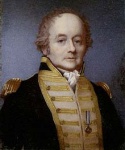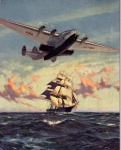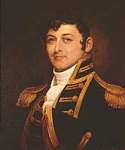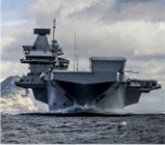I have just received this game, which covers the Trafalgar Campaign, and it appears to be a possible scenario generator as well as a most interesting game in its own right. I have also just received the book The Trafalgar Campaign, hopefully that will help.
The 1805 rules need some serious attention as does the game itself. I'd be interested in comments of any other group members who have the game. I did post on the FB Naval Wargaming page but no replies yet.






 Reply With Quote
Reply With Quote























 Napoleon's strategic maneuvers allowed him to have an opportunity to smash the Prussians whilst pinning the arriving Allied army down with a smaller force, ie; the left wing. It simply does not logically follow that you cannot name a separate battle because your whole army was not there. Waterloo does overshadow the rest because of the decisiveness, but had Napoleon’s plans on June 16th succeeded, there may well not have been a Waterloo at all. I think that is a good reason to define those actions as distinct from the final battle on the 18th. Your citation of Austerlitz is misplaced as that was a single battle fought on the same battlefield in one day, rather than multiple actions separated by location and time.
Napoleon's strategic maneuvers allowed him to have an opportunity to smash the Prussians whilst pinning the arriving Allied army down with a smaller force, ie; the left wing. It simply does not logically follow that you cannot name a separate battle because your whole army was not there. Waterloo does overshadow the rest because of the decisiveness, but had Napoleon’s plans on June 16th succeeded, there may well not have been a Waterloo at all. I think that is a good reason to define those actions as distinct from the final battle on the 18th. Your citation of Austerlitz is misplaced as that was a single battle fought on the same battlefield in one day, rather than multiple actions separated by location and time. 
Bookmarks